Princeton Transfer Acceptance Rate and Requirements — 2024
December 13, 2023

Princeton University is a school that rejects 24 first-year applicants for every 1 that it accepts. The odds are even worse for transfer applicants. However, there is some reason for measured optimism—last year, Princeton decided to admit approximately twice as many transfers as in previous years, a move that is reflected in a 2022 acceptance rate that is more than double that of the 2021 rate. This new initiative is expected to continue for at least the next several years. Accordingly, the following blog will reveal the current Princeton transfer acceptance rate as well as additional essential pieces of information like the Princeton transfer deadline, requirements, decision date, and much more.

Princeton Transfer Acceptance Rate
Below we present the most current available Princeton University transfer acceptance rate as well as historical data.
For entry in the fall of 2022, 1,201 students applied for transfer admission, and 35 were successful. This means that the Princeton transfer acceptance rate is 2.9%. If we break this down by gender, the acceptance rates are as follows:
- Male transfer applicants: 3.7%
- Female transfer applicants: 1.8%
In the fall of 2021, there were 1,350 transfer applicants and 18 individuals were accepted. This means that the Princeton transfer acceptance rate was 1.3%.
When trying to get the complete picture of how difficult it is to transfer into a given school, it is important to look at historical data. Many schools have wild fluctuations in transfer acceptance rates from year to year. Yet, this is not the case at Princeton, which has been pretty steady over the last handful of years.
Historical transfer rates are as follows:
Princeton Transfer Deadline
The university offers an option for fall transfer only. The Princeton transfer deadline for fall applicants is March 1. Additionally, the transfer deadline for Princeton’s optional arts supplement is March 8.
Princeton Transfer Requirements
The Princeton transfer requirements are as follows:
- Completed Common App for Transfer + Princeton Supplement
Graded Written Paper
- Official high school transcripts
- Official college transcripts
- SAT or ACT scores (optional for 2023-24)
- College Report and Mid-Term Report
- Two letters of recommendation (at least one must be from a college instructor)
Princeton University Transfer Acceptance Rate (Continued)
Students who have the best chance to gain admission to Princeton have done the following:
- Completed one or two years of transferable coursework.
- Earned exceptional grades in their first year at a community college or 4-year university.
- Are from a lower-income background, are a community college student, or are a US military veteran. Admissions has a preference for transfer students from these three backgrounds.
- Have incredible extracurricular accomplishments on their resume. For example, publishing a scientific study, earning a patent, founding a national organization, etc. Yes—we recognize those are crazy expectations for a 19-year-old, but getting into Princeton is an absurdly competitive venture.
Princeton Transfer GPA
The is no minimum GPA required to be considered as a transfer applicant at this institution. However, in our experience, you will need a GPA of 3.9 or above to be a truly competitive applicant to Princeton.
Princeton Transfer Writing Supplement
All transfer applicants must respond to the following essay prompts and short answer questions. Frankly, there are an insane number of essays required by Princeton as well as the submission of a graded academic paper. These elements are going to take you a fair amount of time and effort to complete.
For A.B. Degree Applicants or Those Who Are Undecided
As a research institution that also prides itself on its liberal arts curriculum, Princeton allows students to explore areas across the humanities and the arts, the natural sciences, and the social sciences. What academic areas most pique your curiosity, and how do the programs offered at Princeton suit your particular interests? (Please respond in about 250 words.)
For B.S.E. Degree Applicants
- Princeton values community and encourages students, faculty, staff and leadership to engage in respectful conversations that can expand their perspectives and challenge their ideas and beliefs. As a prospective member of this community, reflect on how your lived experiences will impact the conversations you will have in the classroom, the dining hall or other campus spaces. What lessons have you learned in life thus far? What will your classmates learn from you? In short, how has your lived experience shaped you? (Please respond in 500 words or fewer.)
- Princeton has a longstanding commitment to understanding our responsibility to society through service and civic engagement. How does your own story intersect with these ideals? (Please respond in 250 words or fewer.)
Princeton Transfer Acceptance Rate (Continued)
More About You
- What is a new skill you would like to learn in college?
- What brings you joy?
- What song represents the soundtrack of your life at this moment?
Higher Education Experience
- Have you had any interruptions or gaps in your education since high school or college, or have you left any school voluntarily for a significant time frame? If so, please explain the timeline of your postsecondary career. (Please respond in about 150 words.)
- What are your plans during and after your higher education experience? (Please respond in about 150 words.)
For transfer applicants, a graded paper may come from a course taken within the last two years of schooling. While we prefer that it be in the subjects of either English or history, we will also consider papers from courses in the humanities and social sciences for our transfer applicants, provided they meet all of the other requirements listed. Please refer to general requirements for the graded written paper .
Princeton Transfer Decision Date
The Princeton transfer decision date is in mid-May. You will receive a notice of acceptance or rejection by this time.
Final Thoughts – Princeton University Transfer Acceptance Rate
In the words of the admissions committee, “Our transfer admission program involves a highly individualized holistic review of each applicant’s achievements, talents and potential to contribute to learning at Princeton, with the expectation that admitted students are prepared to thrive in our diverse and rigorous learning environment.” Princeton is looking to enroll a small, diverse group of transfer students who will add a mature perspective to the student body. As such, they highly encourage applicants from low-income, community college, and military backgrounds. If that sounds like you, you could have a legitimate shot at a Princeton acceptance.
If you are looking for information on how to apply to Princeton as a first-year student, you may find the following blogs to be of interest:
- How to Get Into Princeton
- Princeton Supplemental Essay Prompt and Tips
Those searching for application info on other institutions may wish to visit our Dataverse pages:
- Transfer Admissions Deadlines
- Transfer Acceptance Rates

Dave Bergman
Dave has over a decade of professional experience that includes work as a teacher, high school administrator, college professor, and independent educational consultant. He is a co-author of the books The Enlightened College Applicant (Rowman & Littlefield, 2016) and Colleges Worth Your Money (Rowman & Littlefield, 2020).
- 2-Year Colleges
- Application Strategies
- Big Picture
- Career & Personality Assessment
- College Essay
- College Search/Knowledge
- College Success
- Costs & Financial Aid
- Dental School Admissions
- Extracurricular Activities
- Graduate School Admissions
- High School Success
- High Schools
- Law School Admissions
- Medical School Admissions
- Navigating the Admissions Process
- Online Learning
- Private High School Spotlight
- Summer Program Spotlight
- Summer Programs
- Test Prep Provider Spotlight

“Innovative and invaluable…use this book as your college lifeline.”
— Lynn O'Shaughnessy
Nationally Recognized College Expert
Transfer Admissions Counseling
- One-on-One Expert Transfer Admissions Counseling & Essay Coaching.
- Our data-driven program helps you identify good-fit transfer schools & maximize your admission prospects. AND you’ll have a team of experts by your side every step of the way.
- Want to learn more?
Submit a Consultation Request

Reflections from a Graduating Transfer Student
May 13, 2021, daniela alvarez.
When I decided to transfer to Princeton, there was an air of mystery about what the next three years of my life would look like. Since Princeton’s last transfer class graduated around the early 1990s, I wasn’t sure what to expect. It honestly terrified me that there was no previous transfer student to ask about their experience, but from the moment I saw that orange tiger with the words "Congratulations" appear on my computer screen, my initial reservations subsided. I was so excited to realize that I would become a part of Princeton’s first transfer cohort since the early 1990s! Now in my final year, I am thankful for my experience as the transfer program has gone above and beyond to make sure that I felt supported.
At first, I was concerned about transferring in as a sophomore as I had already completed two years at Miami Dade College. However, without that "extra year," I wouldn't have had the opportunity to explore my academic and extracurricular interests to the extent that I've been able to. Looking back, I wish someone would have told me that I would want to spend more time at Princeton, not less.
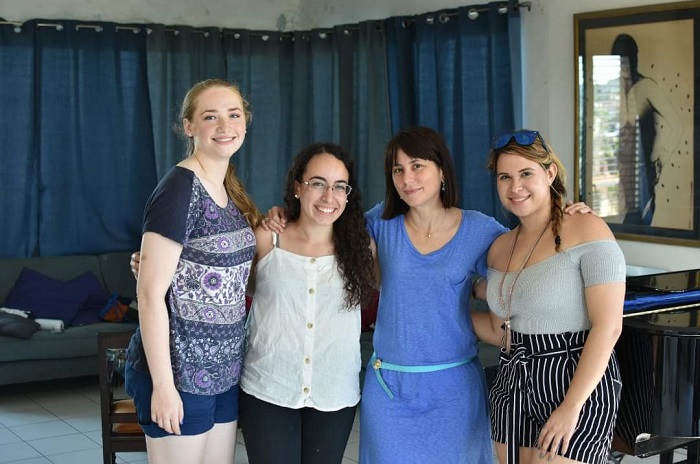
Starting at Princeton as a sophomore gave me more time to explore myself and venture into new spaces. Although I came in with a strong sense of who I was and what my aspirations and academic strengths were, Princeton has taught me to never stop exploring and to pursue every opportunity that intrigues me. Though I had originally planned on pursuing a different concentration, I switched to Spanish and Portuguese when I learned I would have more flexibility to pursue coursework and independent research on immigration. Now, I am writing my senior thesis on how Mexico has become this “big jail” for migrants seeking asylum. Switching concentrations was the best decision I’ve made at Princeton as it has given me so many skills and new perspectives that have even informed my post-graduation plans. You never know where or when you might discover a new passion.
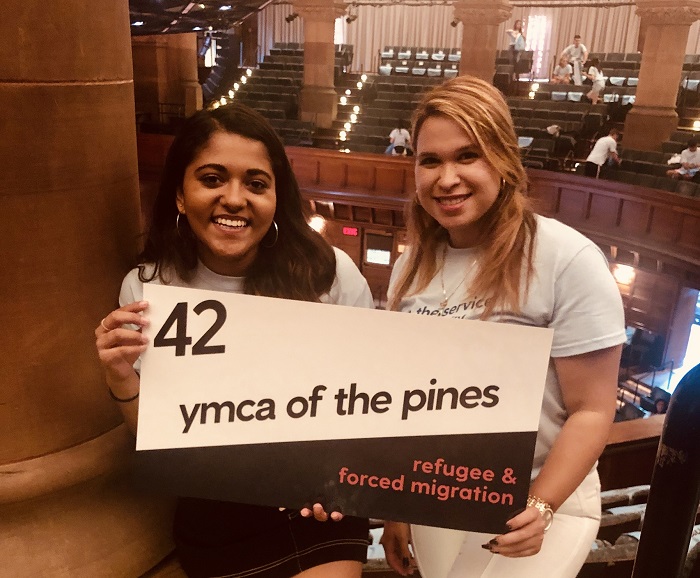
Every semester pushed me out of my comfort zone in different ways, but there was always a professor or resource to turn to for guidance. I would be remiss to not say that there were challenging moments, tough assignments and plenty of second-guessing, but I never felt alone. I knew I could always turn to our transfer adviser, Dr. Shaw , or a fellow transfer student for advice. The intellectual and personal growth that I've experienced is indescribable, and it's propelled me to become even more determined and energized to achieve my goals. I no longer doubt myself or question if I belong; Princeton helped me realize that I can pursue my biggest dreams. As I move on to the next chapter of my life, I'm so humbled to have been a member of this first transfer cohort, and nothing makes me happier than being a part of this unique community and seeing it grow.
Related Articles
Possibilities, passion projects, podcasts, pals... princeton., deep in the thesis trenches, the princeton debate panel in ho chi minh city, vietnam.
What are your chances of acceptance?
Calculate for all schools, your chance of acceptance.
Your chancing factors
Extracurriculars.
How to Write the Princeton University Supplemental Essays 2019-2020

Princeton University , situated in the small and charming city of Princeton, New Jersey, is often regarded as one of the world’s most prestigious universities. Consistently ranked at #1 by the U.S. News undergraduate college rankings, it is no secret that Princeton exudes academic excellence and offers students a top-tier education.
With only 1,895 students being offered admission out of an applicant pool of 32,804, Princeton’s acceptance rate for the class of 2023 comes in at 5.8%. While many of these admitted students undoubtedly had strong academic and extracurricular profiles, the supplemental essays play an equally important role in gaining admission.
Although it might initially seem daunting to try to stand out among tens of thousands of applicants, CollegeVine is here to help and offer advice on how to tackle the application. Here is our guide on how to approach Princeton University’s 2019-2020 supplemental essays. Want to know your chances at Princeton? Calculate your chances for free right now.
Want to learn what Princeton University will actually cost you based on your income? And how long your application to the school should take? Here’s what every student considering Princeton University needs to know.
The Princeton University Supplemental Essay Prompts 2019-2020
Prompt 1: activities: please briefly elaborate on one of your extracurricular activities or work experiences that was particularly meaningful to you. (response required in about 150 words).
Upon initially reading the prompt, it might seem difficult to articulate a thorough response in only 150 words. However, when used to its fullest potential, 150 words is just enough to show the admissions committee an activity you’re passionate about without being overly verbose.
One approach you could take when brainstorming this prompt is to construct a brief anecdote. If you were, for instance, an active member of the debate team, you could craft a story of an impactful debate tournament. Perhaps you could put the reader in your perspective by making it appear as if reader were physically there when the tournament occurred.
Avoid using all 150 words to simply summarize the extracurricular or work experience, as this does not highlight the impact this experience had on you. Remember, the prompt asks for something that was particularly meaningful ; make sure to demonstrate this, whether it be describing its cultural impact, emotional significance, or any other relevant attribute.
Still, it’s understandably difficult to be vivid while remaining within the word limit. Here is an example of a student who took advantage of the limited word count by crafting a concise, yet detailed opening sentence:
“My school’s newspaper and I have a typical love-hate relationship; some days I want nothing more than to pass two hours writing and formatting articles, while on others the mere thought of student journalism makes me shiver.”
This is a very strong opening because the student successfully introduces the topic while also appealing to the reader’s senses. The student maximizes the limited space by carefully choosing words that are both meaningful, yet clear.
When choosing a topic, it may be stronger to pick an activity that contrasts with your chosen major in order to round out your profile. While choosing something related to your major will not automatically hurt your application, it’s always best to illuminate parts of your personality that may not have been highlighted elsewhere on your application.
Prompt 2: Summers: Please tell us how you have spent the last two summers (or vacations between school years), including any jobs you have held. (Response required in about 150 words)
Like the previous question, this is another another brief essay. Similarly, you should try to avoid verbosity and instead try to frame your answer in a direct and concise manner while fully answering the question.
When answering this question, a possible approach is to discuss the lessons that you learned during these two summers through an extracurricular or work experience. If you choose this approach, however, make sure you don’t repeat what you wrote in the previous question.
Perhaps a job you held changed your view on an important attribute in your life or afforded you a valuable skill you previously didn’t possess. Or perhaps you spent your second summer caring for an aging relative and hearing your relative’s stories changed your emotional outlook on life. Here, you could indicate how your second summer opened your eyes in ways that the first summer did not.
Since all this is easier said than done, here is an excerpt from a strong essay:
“Before junior year, I spent several days shadowing Pennsylvania State Senator Nick Micozzie in his community office, observing meetings, making calls, listening to his advice, and realizing that, beyond writing, I’d also developed a powerful pull toward politics. Then, last summer, I spent an incredible week at Susquehanna University’s Advanced Writers Workshop, where I passed one day conquering homesickness and six more drafting, refining, and finally publicly reading a short story.”
This student does an excellent job of compacting an extraordinary amount of detail into two sentences without overwhelming the reader. The student details the roles assumed during these two summers and briefly discusses a new learned passion (a powerful pull towards politics).
No matter what topic you choose, avoid exaggerating your experiences, as this could come off as if your essay is trying too hard to be different or creative. Make your writing feel natural!
Prompt 3: A Few Details:
Your favorite book and its author, your favorite website, your favorite recording, your favorite source of inspiration, your favorite line from a movie or book and its title, your favorite movie, two adjectives your friends would use to describe you, your favorite keepsake or memento, your favorite word.
Here we have what could be both the simplest but most stress-inducing questions. Since these questions are so short, many applicants are caught up with choosing the perfect word or series of words to answer the questions. However, there is no perfect response, as the admissions committee simply wants to get a better feel of who you are; these questions are meant to be casual. No need to overthink it!
With that being said, however, keep in mind that your answers should be appropriate. For instance, if your favorite movie is something like Fifty Shade of Grey, perhaps that is better left unsaid. Avoid writing something offensive – exercise good judgement.
Some applicants may feel a need to include “academic” answers in an attempt to demonstrate intelligence or academic vigor. However, this is not necessary unless your favorites are, in fact, academic, since admissions officers can already see your academic excellence elsewhere in your profile. For example, if your favorite book isn’t Aristotle’s Politics, then there’s no reason to pretend that it is.
Overall, the admissions committee simply wants to get a better sense of the unique parts of your personality, so your answers to these rapid-fire questions won’t make or break your application. Just be yourself!

Your GPA and SAT don’t tell the full admissions story
Our chancing engine factors in extracurricular activities, demographics, and other holistic details. We’ll let you know what your chances are at your dream schools — and how to improve your chances!

Our chancing engine factors in extracurricular activities, demographic, and other holistic details.
Our chancing engine factors in extracurricular activities, demographic, and other holistic details. We’ll let you know what your chances are at your dream schools — and how to improve your chances!
Prompt 4: Essay (Your Voice)
In addition to the essay you have written for the common application or the universal college application, please write an essay of about 500 words (no more than 650 words and no fewer than 250 words). using one of the themes below as a starting point, write about a person, event or experience that helped you define one of your values or in some way changed how you approach the world. please do not repeat, in full or in part, the essay you wrote for the common application or universal college application., a) tell us about a person who has influenced you in a significant way., b) “one of the great challenges of our time is that the disparities we face today have more complex causes and point less straightforwardly to solutions.” omar wasow, assistant professor of politics, princeton university and co-founder of blackplanet.com. this quote is taken from professor wasow’s january 2014 speech at the martin luther king day celebration at princeton university., c) “culture is what presents us with the kinds of valuable things that can fill a life. and insofar as we can recognize the value in those things and make them part of our lives, our lives are meaningful.” gideon rosen, stuart professor of philosophy and director of the behrman undergraduate society of fellows, princeton university., d) using a favorite quotation from an essay or book you have read in the last three years as a starting point, tell us about an event or experience that helped you define one of your values or changed how you approach the world. please write the quotation, title and author at the beginning of your essay..
Before diving in, pay extra attention to this prompt, as it specifies an essay independent from your Common Application or Universal College Application essay. Avoid repeating the same topic, as this won’t highlight anything new in your application. With so many options, however, you should have a variety of ways to approach this essay.
If you have a specific person in mind that has personally influenced you or left a significant impact on your life, then this may be the perfect prompt for you. However, there are still some caveats to this prompt, as there are some topics that can be a little overdone or less-than-ideal.
Upon reading the prompt, many students immediately think of a family member, whether it be a sibling, mother, father, or grandparent. While there is nothing inherently wrong with choosing a family member, these essays can often appear cliche.
A more powerful way of approaching this topic would be to write about a scenario in which you disagreed with your chosen family member in some way. This could be someone holding you back, working against you, or challenging your ideals.
However, when choosing this approach, make sure to not turn your essay into a rant about the individual or appear overly-critical and negative. This can distract from the significance of the experience. Make sure to still be charitable to the person you disagree with, as this will create a much more powerful narrative.
For example, if you and a parent disagree on your career choice, you could highlight that you acknowledge their perspective even in your disagreement. Maybe your parents pressured you into going into medicine, but your true passion lies in social work. Although both express similar goals (helping others), your parents come from an economically-insecure, immigrant background and only want you to achieve financial security. Here, you understand your parents’ position, but continue to express a different perspective. Of course, you would want to elaborate upon this more by demonstrating its significance and influence.
Another approach to this prompt would be to discuss a peer. A positive scenario could perhaps be a friend who helped you overcome a major struggle in you life such as an insecurity, loss, or fear. Maybe your best friend was the person who was able to recuperate you from a tragic loss of a childhood pet. Or a friend helped you overcome the physical struggles that accompanied a sudden injury. Either way, be sure to emphasize the role that peer played during the interaction and highlight the reasons why it was significant.
If you describe a negative scenario with a peer, you could discuss about how an individual negatively impacted your mental health. Perhaps you experienced bullying and you want to discuss the impact this had on your educational experiences. Or perhaps you want to discuss how overcoming this initially damaging behavior allowed you to develop newfound strength, courage, and confidence.
With that being said, keep in mind what the prompt is asking. While not explicit, it is stronger to write about someone who personally impacted you. Many students may choose someone such as Bill Gates or Mark Zuckerberg in order to highlight how these individuals impacted their passion for technology or entrepreneurship. However, unless you have personally interacted with these public figures, your essay will not be as personal. Writing about such individuals will not ruin your application, but be mindful of the personal aspect to the essay.
If there’s a social or political issue that you’re passionate about or if you have personally fallen victim to one of these disparities, then this is a perfect prompt to explore your ideas on the subject. Upon first reading the prompt, it might seem a little daunting since it’s expressed as a quote instead of a clear-cut question. Although the prompt might seem a little broad, this allows you to incorporate more creativity and more variety when brainstorming topics.
One approach you could take when writing this prompt is to choose a political, social, or moral issue and analyze it by detailing its causes and suggesting possible solutions. Perhaps you are extremely passionate about the Me Too Movement and want to analyze the causes and implications. Or maybe you have thoughts about gender equality and want to show how this disparity constitutes a large part of who you are today. Here, the possibilities are endless.
With that being said, however, don’t forget that this is a personal essay and not an analytical paper. While it’s perfectly fine to analyze the disparity, make sure this doesn’t take up your whole essay. Instead devote space to discussing how your chosen disparity impacts you and specifically why it is important/relevant to you.
If you don’t feel particularly passionate about any specific political, social, or moral issue, another approach is to personalize the topic and discuss something specific to your experiences. If you have struggled with anxiety or depression, a strong essay could analyze the impact this had on you and how it has shaped your life today. If you are on the ADHD spectrum, you could highlight the effects this attribute has had on your education or lifestyle, and how you manage any challenges.
Another strong way to approach this prompt is to reflect on the privileges that you notice in your life. With this, however, it’s best to choose something more subtle and unique rather than discussing the more commonly perceived privileges of being white, male, or wealthy. For instance, if you have a particular skill or quality that somehow affords you a privilege that others may not have, this would be a great place to discuss that. Perhaps you are lucky to have a particular group of friends that keeps you humble and grounded. Or perhaps you are lucky to have a specific talent that many others may not necessarily have.
A creative way to execute the previous approach is to discuss how your life would be had you not had that privilege. What would have happened if you did not have the same group of friends you do now? How would your life be different?
Note: it’s important to consider that the quote in the prompt mentions “great challenges of our time,” so you should probably pick an issue or situation that is relevant or severe enough to fit the tone of the given quote.
Whichever topic or approach you choose, make sure to include a personal element into the essay, as this will make your writing much stronger and impactful. Remember, Princeton wants to know more about you , so make sure to let your personality shine through.
Like the previous prompt, this essay offers a great range of variety, as it is up to you to interpret what the quote means. Often, students immediately think of their heritage or ethnic background, especially if part of an immigrant family. While this is a good start and can definitely still produce strong essays, these are often overdone.
Another way to discuss culture is to analyze your experiences with a culture different from your own. Perhaps interacting with those of another culture taught you a valuable lesson on acceptance and broadening your worldviews.
For a more unique approach, you could instead interpret the word “culture” outside of its traditional usage. For example, you could talk about the culture (essentially the overall environment) at your school and how that has impacted your educational experience. Perhaps your school culture held you back in some way and challenged you by confronting you with adversity. Or perhaps it positively influenced you by introducing you to academic and extracurricular opportunities you wouldn’t have had otherwise. Either way, analyze both the negatives and positives, if applicable, to your experiences and tie in your personal experiences to craft a thorough narrative.
Culture can also apply to your strongest passion; you can discuss the culture surrounding this passion in a similar fashion as the previous example. If you’re an avid female gamer, for example, you could analyze the gaming community culture and the lack of female representation in League of Legends. By critiquing the misogyny, lack of access, and overall unwelcoming attitudes, you could show honesty while also offering solutions to these issues. By critiquing and suggesting possible changes over time, you demonstrate your awareness of modern issues while also highlighting a culture important to your individuality.
Ultimately, there are endless ways to interpret culture beyond those mentioned in this guide. Most importantly, no matter the subject, remember to unearth the value of your culture and the role that it has played or continues to play.
This prompt is arguably the most open-ended out of the four, since Princeton is essentially giving you the freedom to write about any topic you please. As long as your chosen quote reflects your values in some way or has changed them, then you are free to choose anything.
The essay or book you choose can definitely be academic, as this would help highlight your passion towards that subject and how this passion has impacted your worldview. If, for instance, you have read an eye-opening research essay on biotechnology, you could analyze the uniqueness of the topic and discuss how it has changed your perspective of the world. Perhaps it has taught you the value of slowing down in the midst of a technological revolution. Or perhaps it has done the opposite by strengthening your appreciation for technology and motivating you to pursue similar research.
In this case, political essays are a little tough to execute, but they can still definitely be done well. For example, if you live in a state or country where people of your background face prejudice or discrimination as a result of a prevailing political attitude, you could reflect on how that has challenged your empathy towards people who support a government that condones such discriminatory actions. A quote from any book or essay that relates to topics of prejudice, political turmoil, or even immigration would work well in this case.
Even with the plethora of options for this prompt, however, try to avoid cliche quotes such as “be the change you want to see in the world” or “if life gives you lemons, make lemonade.” These sayings have been used way too frequently and you’ll benefit from choosing something more unique that relates more personally to your life.
To demonstrate an excellent usage of a unique quote, one student cited the quote “You cannot be lonely if you like the person you’re alone with ” from Wayne Dyer’s The Power of Intention. Here is an excerpt from this student’s essay that successfully drew a powerful conclusion:
“After sliding around in the snow for a while, I went on the swing set and saw how far I could launch myself off the swing into the white powder, and to this day, I can vividly remember how much fun I had. I didn’t feel any qualms about being alone, and I didn’t experience any awkwardness or embarrassment when people asked about what I did over the break upon returning to school. Without that sense of independence, I probably would have stayed at home wasting my day with monotonous activities. Instead, I wasn’t afraid to go outside to play in the snow alone, free of insecurity, and create a memory I can still fondly recollect.
By spending time by myself, I’ve learned to like the person I’m always alone with. Even though I may not always be surrounded by others, through the internal strength I gain with this self-appreciation and independence, I will never be lonely.”
The overall conclusion is quite unique as the student interprets a quote on loneliness as a means to encourage self-love and independence. The student does an excellent job of making the topic extremely personal by crafting a narrative on individual strength, telling a story of playing alone in the snow and showing what lesson was learned from this experience. It is clear that the quote has a powerful meaning and connection to the student’s personal growth.
Prompt 5: Engineering Essay*
If you are interested in pursuing a bachelor of science in engineering degree, please write a 300-500 word essay describing why you are interested in studying engineering, any experiences in or exposure to engineering you have had and how you think the programs in engineering offered at princeton suit your particular interests., *this essay is required for students who indicate bachelor of science in engineering as a possible degree of study on their application..
This essay is only required for those who have indicated an interest in pursuing a Bachelor of Science in Engineering on their applications.
The key here is to be specific ; an implicit aspect of this question is “why Princeton engineering? What makes Princeton’s engineering program different from other programs? Why would this be a better fit for you? Rather than vaguely discussing the reasons why Princeton’s engineering program is something you desire, include specific classes and appeal to the philosophy of an engineering education. For instance, if there’s a particular class that interests you, don’t be afraid to directly mention it and connect the class back to your overall interests in engineering.
Extracurricular programs are another area you should definitely mention. If you’re passionate about sustainability, you could mention an interest in Princeton’s Engineers Without Borders and comment on how you will use your membership to promote sustainable engineering. If you enjoy working with kids, perhaps Princeton Engineering Education for Kids is more appealing. No matter your interests, be sure to mention a club or organization that could allow you to pursue these interests outside of the classroom.
If you have a preferred area of specialization, such as bioengineering or chemical engineering, it would be great if you’re able to tie this back to your current passions or activities. Maybe you are already involved in an organization at your current school that deals with these more specialized areas of engineering. If so, make sure to emphasize this, as this would allow your passion to shine through and show previous relevant experience.
Be warned, however, that listing all your engineering related activities can make your essay sound like a resume. Rather than simply providing a list, connect each activity to each other in order to construct a more cohesive essay. Make sure that any change in topics flow smoothly from one to the next to avoid transforming your essay into a laundry list of your achievements.
Another direction that you could take when discussing previous engineering experience is to discuss your state of mind when partaking in these activities. Perhaps working on complex engineering problems gets your adrenaline pumping or perhaps you find it quite therapeutic and relaxing. It’s always a good idea to show the admissions officers how you feel when partaking in subjects you’re passionate about.
As always, remember to show Princeton another piece of yourself by highlighting your passions, interests, and goals and connecting these back to Princeton’s academic environment.
Hopefully, reading this guide has allowed you to approach Princeton’s supplemental essays with the utmost confidence, making you all the more excited to become a potential Tiger. Happy writing!
Want help with your college essays to improve your admissions chances? Sign up for your free CollegeVine account and get access to our essay guides and courses. You can also get your essay peer-reviewed and improve your own writing skills by reviewing other students’ essays.
Related CollegeVine Blog Posts

College Reality Check
Transferring to Princeton? How to Improve Your Chances for Success
Many college-bound teens cross Princeton University out of their college list the minute they learn that the Ivy League has a very low acceptance rate of 4% only.
But wait until you learn its acceptance rate for transfer applicants is 1.3%.
This number is based on the fall admissions cycle where only 18 were accepted among all 1,350 transfer applicants.
Considering transferring to Princeton still despite the unbelievably low acceptance rate for transferees? Then make sure that you read this post until you get to the end — I will guide you through the application process.
But first, let’s answer this very important question…

Who is Eligible to Transfer to Princeton?
Students with 1 to 2 years of eligible transferable course units may apply to Princeton University as transfer students. Transfer students with 1 year of full-time postsecondary education by the time of enrollment may enter as sophomores. Meanwhile, those with 2 years of full-time postsecondary education may enter as juniors.
Got less than 1 full-time college experience? Then you are not eligible to apply to Princeton as a transferee.
Well, you can apply but as a first-time, first-year student and not as a transfer student. And because you will be applying as a freshman, none of the courses you have taken in college can win you transfer credits.
As mentioned earlier, as a transferee, you can enter Princeton either as a sophomore or junior student. It’s important to note that you cannot enter the highly-ranked institution with a higher standing than as a junior.
Transferees entering as sophomores can transfer up to 11 course credits , while those who are entering as juniors can transfer up to 17 course credits.
However, not all courses completed at another college can be transferred to Princeton.
To be eligible for transfer, requirements must be met. For instance, courses must have a topic and rigor level that they could be taught at Princeton itself. Of course, they should be taken at an accredited college or university.
More often than not, transferred courses allow students to meet general education requirements only.
According to the Ivy League itself, Princeton seeks out transfer students who can bring a variety of perspectives and experiences to its campus.
The institution encourages especially first-generation students, low-income students, community college students and US military veterans to apply as transferees.
Steps to Successful Transferring to Princeton
Transferring to Princeton University starts with submitting the Common App and paying (or waving) the $70 application fee on or before March 1. Various requirements have to be submitted, too, such as supplemental essays, a graded written paper, transcripts, college report, midterm report and academic recommendations.
The following is the step-by-step process to apply to Princeton as a transfer student:
Fill out the Common App
Freshmen applicants apply to Princeton University via either the Common App or Coalition App.
On the other hand, transfer applicants can apply to the prominent school through the Common App only. When creating a Common App account, of course, you choose “transfer student”.
The deadline for applying to Princeton as a transfer student is March 1.
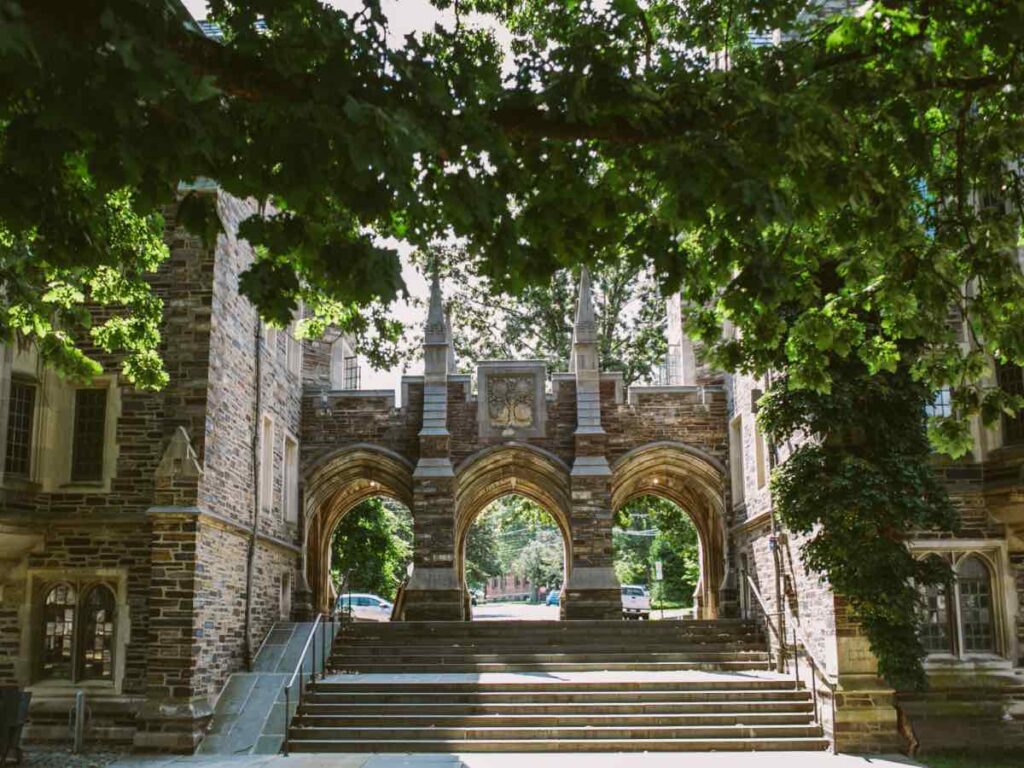
Pay the application fee
Applying to Princeton as a transfer student costs $70.
If you are from a low-income background and the said amount would cause a hardship for your family, you may request the elite school to waive the transfer application fee — you can do so by selecting the fee waiver option on the Common App.
Submit the Princeton Transfer Supplement
Simply put, the Princeton Transfer Supplement consists of various supplemental questions. Word count ranges anywhere from 50 or lower to around 250 words.
Some questions are for those who are interested in studying engineering, while others are for those who are interested in studying areas in liberal arts. There are also those for undecided students.
The following prompts require an essay consisting of around 250 words:
- At Princeton, we value diverse perspectives and the ability to have respectful dialogue about difficult issues. Share a time when you had a conversation with a person or a group of people about a difficult topic. What insight did you gain, and how would you incorporate that knowledge into your thinking in the future?
- Princeton has a longstanding commitment to service and civic engagement. Tell us how your story intersects (or will intersect) with these ideals.
Meanwhile, the following prompts require answers consisting of about 150 words:
- Briefly elaborate on an activity, organization, work experience or hobby that has been particularly meaningful to you.
- Have you had any interruptions or gaps in your education since high school or college, or have you left any school voluntarily for a significant time frame? If so, please explain the timeline of your postsecondary career.
- What are your plans during and after your higher education experience?
And these questions about yourself require answers consisting of 50 words or fewer:
- What is a new skill you would like to learn in college?
- What brings you joy?
- What song represents the soundtrack of your life at this moment?
Obtain a graded written paper
Other than supplemental essays and short answer questions, transfer applicants to Princeton are also required to provide a graded written paper, which will help the Ivy League’s admissions officers to further assess a student’s written expression in an academic setting as well as his or her potential contributions and ability to thrive on campus.
The graded written paper may come from a course taken within the last 2 years of college, preferably in a subject such as English, history, humanities or social sciences.
Request official transcripts
Because transfer applicants have a postsecondary experience that first-time, first-year applicants don’t, they need to submit both their high school transcripts and college transcripts.
Went to more than a single institution of higher education?
It’s important that you request the registrar at each of them to send your official college transcripts to Princeton. As for your high school transcript, on the other hand, you should request the counselor at your high school to send it to the Ivy League.
Submit transfer and college report and midterm report
Informing your college’s transfer counselor or another official to complete the transfer report and midterm report forms, both of which are downloadable from the website of the Common App, is an important transfer application step.
And if you are currently enrolled in college, you should download the midterm report form on the Common App’s website and fill it with your courses and in-progress grades. Unlike the transfer report and college report, you can self-submit the midterm report. Submitting it past March 1 is possible if your grades are yet to become available.
Provide two academic recommendations
Transfer applicants to Princeton are required to submit a total of 2 letters of recommendation, each of them should come from instructors from different academic areas. In some instances, a teaching assistant may also write the recommendation letter, provided that he or she has taught you.
Fret not if you cannot find 2 instructors — Princeton says that at least 1 should come from an instructor.
Self-report test scores
As of this writing, Princeton has a test-optional admissions policy for both freshmen and transfer applicants. Needless to say, you may or may not submit those SAT or ACT scores of yours. The prestigious Princeton, New Jersey-based research university, by the way, does not require transfer applicants to submit optional writing or essay section.
Princeton has set no minimum test scores transfer applicants must meet. But to give you an idea, the average SAT and ACT scores of admitted students range from 1460 to 1570 and 33 to 35, respectively.
Just Before You Transfer to Princeton
With a transfer acceptance rate of just a little over 1%, getting into Princeton University as a transfer student can be difficult. This is made even more so by the fact that there are also many different documents or materials to provide.
After submitting all the transfer application requirements, all that’s left for you to do is to wait for mid-May to arrive — it’s when transfer admissions decisions are released. And if you get an offer to enroll as a transferee, make sure that you inform the prestigious institution about your plan to enroll by late May.
Related Questions
Does Princeton University require transfer applicants to have a minimum GPA?
There is no minimum GPA requirement to meet when applying to Princeton as a transfer student. But given the fact that it has a very low acceptance rate of 1.3% for transfer applicants, having a high GPA is a definite plus. The average GPA of students admitted to the Ivy League is 3.93.
Are transfer students to Princeton University required to live on campus?
At Princeton, all freshmen and sophomore students are required to live in on-campus housing. Transfer students who are entering the Ivy League as sophomores, needless to say, must live on campus. On the other hand, transferees who are entering as juniors are not required to live on campus.
Other Colleges Worth Transferring:
- How To Get Into Harvard As A Transfer Student
- How To Get Into Yale As A Transfer Student
- How To Get Into Columbia As A Transfer Student
- How To Get Into Stanford As A Transfer Student
- How To Get Into Dartmouth As A Transfer Student
- How To Get Into University of Chicago As A Transfer Student
- How To Get Into University of Pennsylvania As A Transfer Student
- How To Get Into MIT As A Transfer Student
- How To Get Into Brown As A Transfer Student

Independent Education Consultant, Editor-in-chief. I have a graduate degree in Electrical Engineering and training in College Counseling. Member of American School Counselor Association (ASCA).
Similar Posts
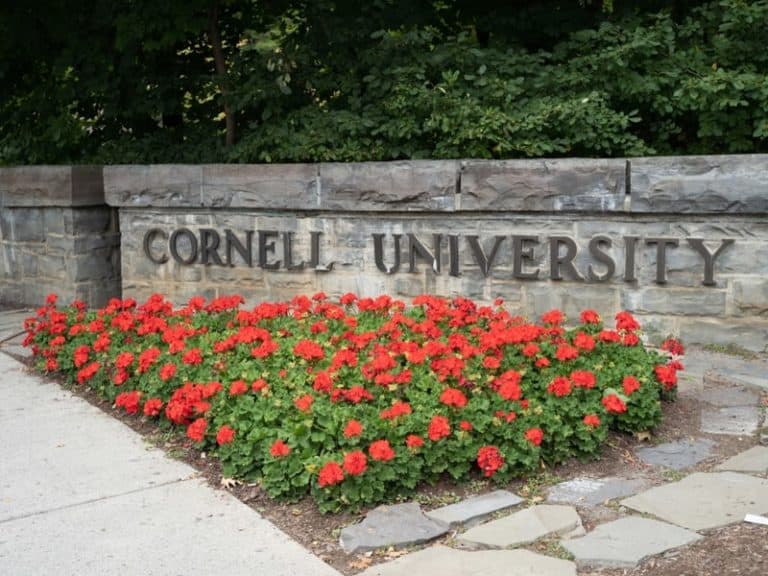
What Makes Cornell Unique?

How to Get Into Princeton University: Complete Guide
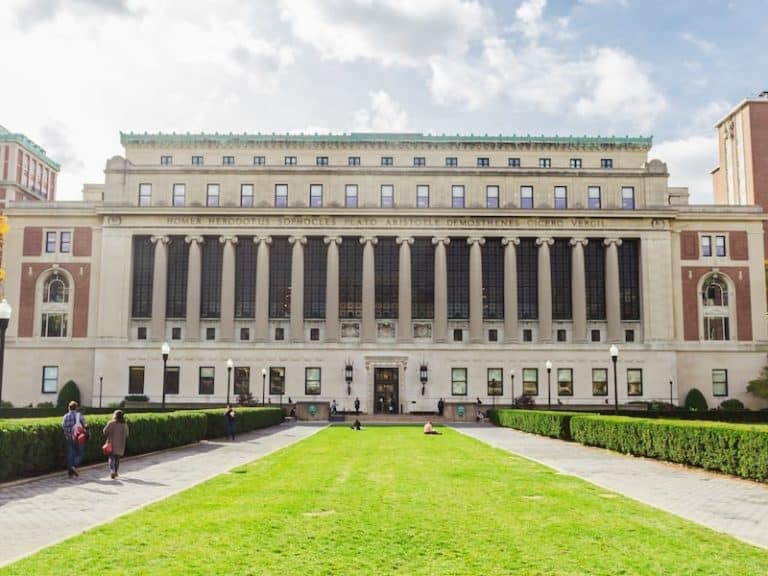
How to Get Into Columbia University: Ultimate Guide

Pros and Cons of Going to an Ivy League School
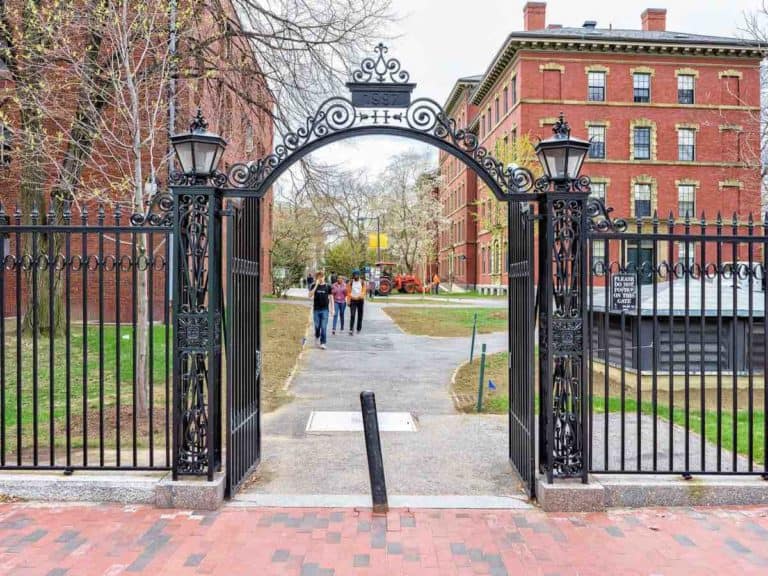
Navigating Harvard’s Costs: From Sticker Price to Net Price
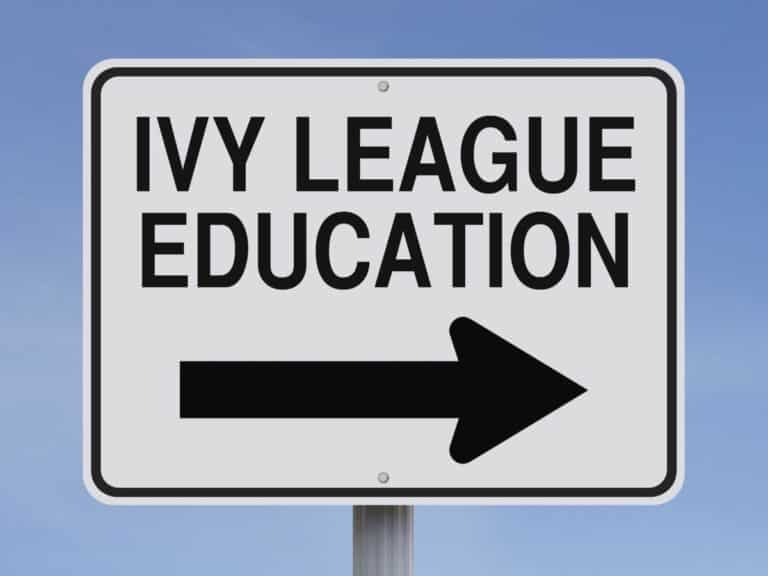

How to Prepare Your Child for Ivy League Schools

Beyond Borders: Uniting Through Sports at Princeton
March 4, 2024, gina arnau '26.
The atmosphere crackled with anticipation as I made my way through the buzzing crowds at Jadwin Gymnasium. Every step echoed the heartbeat of a campus pulsating with excitement, nerves, and unbridled pride. It was the game against Cornell—the culmination of a season filled with sweat, determination, and unwavering support.
The stands were a sea of orange and black adorned with signs and banners proudly bearing the Princeton colors. Students, alumni, and staff alike filled every available space, excitedly chatting with each other. As the players took to the court, a deafening roar erupted from the crowd. Every pass, every shot, every steal was met with cheers, chants, and applause that echoed throughout the court. And then, as the final buzzer sounded, a deafening eruption of joy engulfed the stadium. Princeton had emerged as winners, defending the first standing in the Ivy League title with everything to be determined on the last game.
Coming from the fervent soccer culture of Barcelona and as an avid FC Barcelona fan, I had always cherished the moments spent watching games with friends, whether huddled around a TV screen or roaring in the stands of Camp Nou. Those experiences were more than just about the game itself; they were about the bonds forged through shared passion and the feeling of belonging to something greater.
But as I stepped onto the Princeton campus, I couldn't help but wonder if I would be able to replicate those experiences in a new environment, with unfamiliar American sports taking center stage. Would the thrill of cheering on my team from the stands be the same? Could I forge the same deep connections with fellow fans in a place where soccer was not the primary sport of choice?
My doubts began to dissipate as I found myself swept up in the fervor of Princeton's sports scene. The football game against Yale was a thriller from start to finish. Despite my initial unfamiliarity with the rules of American football and the unfamiliar setting of Yale’s stadium, I found myself cheering alongside the other fans, united by our shared desire for victory. The game may have ended in defeat, but the atmosphere of unity and spirit lingered long after the final whistle.
However, while football welcomed me into Princeton’s sports scene, basketball was the absolute game-changer. Whether it was the electrifying atmosphere of the Yale showdown during the Ivy Tournament or the unparalleled energy of the March Madness watch parties, attending basketball games with friends, fellow students, alumni, and staff, have truly made me feel a sense of belonging that transcended cultural differences.
In that moment of victory, surrounded by cheering students, alumni, and staff, I felt a sense of belonging that surpassed anything I had experienced before. It didn't matter that the sport was different or new—what mattered was the shared passion, the shared joy, and the shared sense of community that bound us all together.
More From Forbes
Princeton university admissions to continue considering legacy status.
- Share to Facebook
- Share to Twitter
- Share to Linkedin
Based on a recent review of its admission policies, Princeton University has decided to continue to ... [+] extend what it describes as a limited use of legacy preferences.
Citing what it claims to be a “small” impact on student socioeconomic and racial diversity, Princeton University announce d today it would continue to consider the legacy status of applicants as a factor in its undergraduate admission decisions.
The decision came following a March 14 report by a Princeton Board of Trustees ad hoc committee the university had established to examine its undergraduate admission policies and “ensure our admissions policies in general are optimally serving the University’s mission.”
That report addressed several aspects of Princeton’s undergraduate admissions, including expanding the number of transfer students, maintaining the preferences that legacies – the children of alumni – are given in undergraduate admissions, and following a principle that recruited athletes “be representative of the broader student body in terms of academic and other criteria.”
Princeton’s announcement justified its use of a legacy admission preference by contending that it operates merely as a “tie-breaker” between equally qualified applicants, and consequently has only a limited impact on the makeup of incoming classes.
The ad hoc committee report included this observation:
“ The legacy preference functions as a tie-breaker between equally well-qualified applicants in limited instances. In any given year, the vast majority (around 70 percent) of legacy applicants are denied admission. Of the alumni children who are admitted, the overwhelming majority are admitted regardless of the legacy preference and before any tie- breaker is considered. On average, the preference benefits fewer than 30 students per year, or less than two percent of admitted students. The few students who do benefit from the legacy preference all have academic and extracurricular profiles fully comparable to those of the most talented applicants.”
Best High-Yield Savings Accounts Of 2024
Best 5% interest savings accounts of 2024.
“The effects of Princeton University’s legacy preference on the racial diversity of its undergraduate student body are also exaggerated and misunderstood,” the committee found.
It cited two reasons for this conclusion. “First, the legacy preference affects so few students that it has little effect on the overall composition of the University’s undergraduate population. Second, Princeton’s alumni population is increasingly diverse in terms of race and ethnicity; it is expected that the pool of alumni children who apply for admission will soon be at least as diverse as the overall pool in those respects.”
Nonetheless, the committee report acknowledged that:
“If not properly managed, the legacy preference may modestly affect the University’s ability to achieve its socioeconomic diversity goals. The committee recommends that the University continue to carefully monitor the effects and implementation of the legacy preference to ensure that it is fully consistent with the University’s admissions philosophy, including its commitments to academic excellence and socioeconomic diversity.”
At the same time it will continue to apply a legacy advantage, Princeton also maintained that it is committed to admitting diverse classes of students. It established the goal for its undergraduate enrollment to include at least 70% of students being eligible for need-based financial aid and at least 22% being eligible for Pell Grants. Currently, 67% of Princeton students receive need-based aid, and around 20% are Pell-eligible, according to the announcement.
“Princeton’s excellence depends upon attracting and supporting talent from all sectors of society,” said President Christopher L. Eisgruber, in the university’s release. “I am grateful to the board for its vigorous commitment to the diversity of our student body and for these thoughtful recommendations about how best Princeton can create new opportunities for students from all backgrounds.”
Princeton’s decision comes as momentum to end legacy admissions continues to build on a number of fronts . Colorado and Virginia have now passed laws banning the practice at their public colleges. Several other states are considering similar legislation, including Connecticut, which is debating a bill that would prohibit the practice at private universities as well public institutions.
Several prominent colleges have acted on their own to end their use of legacy and donor preferences, a federal bill that would disallow the practice has been introduced, and prominent higher education figures are stepping forward to voice their opposition to such practices.
Last month, former Harvard President Derek Bok told the Financial Times , “letting in people because their parents are rich and might make a substantial contribution is wrong. It’s more necessary than ever to adapt the system to focus on academic ability not extraneous reasons.”
Even if its impact is limited as Princeton claims, a legacy preference still faces the basic problem of appearing fundamentally unfair. There are a lot of “tie breakers” that could be applied in close-call admission decisions. Where an applicant’s parent went to college hardly seems to be among the most compelling.
- Editorial Standards
- Reprints & Permissions

Transfer Essay Questions
In addition to the Coalition Application or the Common Application , Princeton University requires the Princeton-specific Questions. Below you will find the supplemental questions for the 2023-24 application cycle. Depending on which degree you wish to pursue at Princeton (A.B., B.S.E. or undecided), you will answer one of the two academic prompts, then there are four additional sections meant to help us get to know you even better.
Please be aware that Princeton may not be visible as an option on these application platforms until our application is live in the fall.
Please note: Princeton requires you to submit a graded written paper as part of your application.
For A.B. Degree Applicants or Those Who Are Undecided
As a research institution that also prides itself on its liberal arts curriculum, Princeton allows students to explore areas across the humanities and the arts, the natural sciences, and the social sciences. What academic areas most pique your curiosity, and how do the programs offered at Princeton suit your particular interests? (Please respond in about 250 words.)
For B.S.E. Degree Applicants
- Princeton values community and encourages students, faculty, staff and leadership to engage in respectful conversations that can expand their perspectives and challenge their ideas and beliefs. As a prospective member of this community, reflect on how your lived experiences will impact the conversations you will have in the classroom, the dining hall or other campus spaces. What lessons have you learned in life thus far? What will your classmates learn from you? In short, how has your lived experience shaped you? (Please respond in 500 words or fewer.)
- Princeton has a longstanding commitment to understanding our responsibility to society through service and civic engagement. How does your own story intersect with these ideals? (Please respond in 250 words or fewer.)
More About You
- What is a new skill you would like to learn in college?
- What brings you joy?
- What song represents the soundtrack of your life at this moment?
Higher Education Experience
Have you had any interruptions or gaps in your education since high school or college, or have you left any school voluntarily for a significant time frame? If so, please explain the timeline of your postsecondary career. (Please respond in about 150 words.)
- What are your plans during and after your higher education experience? (Please respond in about 150 words.)
Graded Written Paper
We ask all students to submit a graded written paper as part of their application to Princeton.
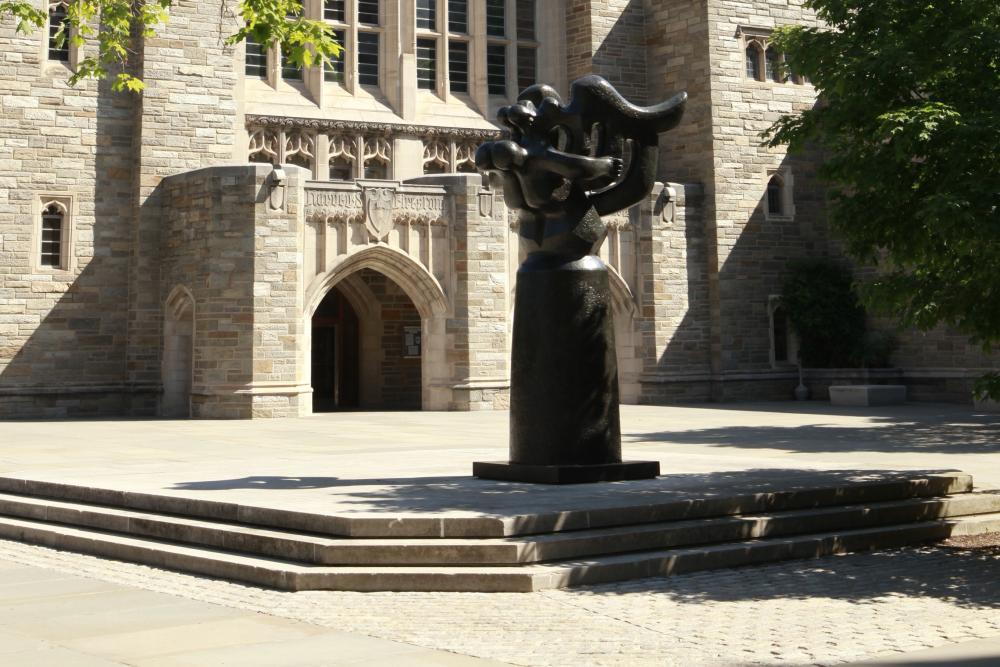
From the Blog and Podcasts
Prefrosh, curious about academics start here, a guide to taking your first "real" class, discovering my passion at princeton, how to research a university.
Moscow Taxi Transfers
The cost of the order does not change
Free hour of waiting
The driver meets you with a nameplate
Driver will help with luggage
Best price transfers from Moscow
Our service will help you order a taxi from Moscow at a fixed price with a Russian-speaking driver. It is easy to book an individual transfer in advance: choose the capacity and class of car, indicate where to meet you and where to take you. You can pay for the trip online, which is very convenient. Plus, you don't have to give directions, as you'll provide the address at checkout.
Book a private transfer to Moscow
At your choice in Russia (Russia) 11 classes of cars: from an inexpensive sedan to a 19-seater minibus. Are you traveling with children? Book a comfortable minivan with child seats. Are you carrying a lot of luggage? You can order a roomy minivan to Moscow. If you need a group transfer, order a minibus. The cost of a taxi per person will be comparable to a ticket for a city bus or train.
How to find and order a transfer in Moscow?
In the search form, specify your route: in the «From» field, enter the place of departure Moscow, in the «To» field - the destination. You can specify: hotel, hotel or city center from the drop-down prompts. Next, specify the number of passengers and click the «Show price» button. Choose the right transfer in Russia (RU) and fill out the order form.
Our cars in Russia
For transfers in Russia from Moscow, only modern cars with professional drivers are provided. A large selection of car classes, from economy class with a minimum cost and VIP taxi for business trips to roomy minibuses for group transfers.

Book your private transfer for your business trips, downtown meetings, entertainment, shopping in Moscow. We will provide reliable services especially in cases of transfering children and elder persons.
Moscow on the map
Transfer reviews in Russia
- ALL MOSCOW TOURS
- Getting Russian Visa
- Top 10 Reasons To Go
- Things To Do In Moscow
- Sheremetyevo Airport
- Domodedovo Airport
- Vnukovo Airport
- Airports Transfer
- Layover in Moscow
- Best Moscow Hotels
- Best Moscow Hostels
- Art in Moscow
- Moscow Theatres
- Moscow Parks
- Free Attractions
- Walking Routes
- Sports in Moscow
- Shopping in Moscow
- The Moscow Metro
- Moscow Public Transport
- Taxi in Moscow
- Driving in Moscow
- Moscow Maps & Traffic
- Facts about Moscow – City Factsheet
- Expat Communities
- Groceries in Moscow
- Healthcare in Moscow
- Blogs about Moscow
- Flat Rentals
People & blogs about Moscow
Impressions of an expat.
This blog written in the form of fascinating novel-in-progress. Marco North immerses the readers into particular situations expats can face daily but in literary processed version. The blog is widely popular and even is called as «the work of a modern Chekhov».
Site: http://impressionsofanexpat.blogspot.com
Kidding Herself
Kidding Herself is written from the point of view of a five year old girl and is a child’s guide to going out in Moscow. Herself moved to Moscow from London in 2015 with her British Mama, her Russian Papa and her AngloRusski Big Brother. Find out what she thinks about the Kremlin, Red Square, the zoo, more art galleries than she thinks are strictly necessary and the giant Central Children’s Store.
Site: http://kiddingherself.com
FunnyNotesBlog
Mostly the funny notes of Iva coping with Russian life and culture!
Site: https://funnynotesblog.blogspot.ru
Potty diares
This is a blog of an expat mother of two sons, living in Moscow. The author shares her experience on bringing up kids in Moscow, some useful tips and impressions of the city.
Site: http://potty-diaries.blogspot.co.uk
Arty Generation
This is a site about artists and creative people in Moscow.
Site: https://www.artygeneration.com
If you have a great blog about Moscow to add, send us a link at [email protected]
Our Private Tours in Moscow
All-in-one moscow essential private tour, moscow metro & stalin skyscrapers private tour, moscow art & design private tour, soviet moscow historical & heritage private tour, gastronomic moscow private tour, «day two» moscow private tour, layover in moscow tailor-made private tour, whole day in moscow private tour, tour guide jobs →.
Every year we host more and more private tours in English, Russian and other languages for travelers from all over the world. They need best service, amazing stories and deep history knowledge. If you want to become our guide, please write us.
Contact Info
+7 495 166-72-69
119019 Moscow, Russia, Filippovskiy per. 7, 1
Mon - Sun 10.00 - 18.00
Home — Essay Samples — Geography & Travel — Travel and Tourism Industry — The History of Moscow City
The History of Moscow City
- Categories: Russia Travel and Tourism Industry
About this sample

Words: 614 |
Published: Feb 12, 2019
Words: 614 | Page: 1 | 4 min read

Cite this Essay
Let us write you an essay from scratch
- 450+ experts on 30 subjects ready to help
- Custom essay delivered in as few as 3 hours
Get high-quality help

Dr. Heisenberg
Verified writer
- Expert in: Geography & Travel

+ 120 experts online
By clicking “Check Writers’ Offers”, you agree to our terms of service and privacy policy . We’ll occasionally send you promo and account related email
No need to pay just yet!
Related Essays
9 pages / 3964 words
6 pages / 3010 words
4 pages / 2143 words
2 pages / 1057 words
Remember! This is just a sample.
You can get your custom paper by one of our expert writers.
121 writers online
Still can’t find what you need?
Browse our vast selection of original essay samples, each expertly formatted and styled
Related Essays on Travel and Tourism Industry
Travelling is a topic that has been debated for centuries, with some arguing that it is a waste of time and money, while others believe that it is an essential part of life. In this essay, I will argue that travelling is not [...]
Traveling is an enriching experience that allows individuals to explore new cultures, meet people from different backgrounds, and broaden their perspectives. In the summer of 2019, I had the opportunity to embark on an amazing [...]
Travelling has always been an exhilarating experience for me, and my recent trip to Rome was no exception. The ancient city, with its rich history and breathtaking architecture, left a lasting impression on me. It was a journey [...]
Paris, known as the City of Light, is one of the most iconic and culturally rich cities in the world. My recent visit to Paris was an unforgettable experience that allowed me to immerse myself in the history, art, and beauty of [...]
When planning a business trip all aspects and decisions rely heavily on the budget set by the company for the trip. Once Sandfords have confirmed the location careful consideration should be used to choose the travel method and [...]
Tourism is an action of worldwide imperativeness and importance as it is a major force in the economy (Cooper et al. 2008). Tourism has undeniably developed as one of the most significant economic and social phenomena of the [...]
Related Topics
By clicking “Send”, you agree to our Terms of service and Privacy statement . We will occasionally send you account related emails.
Where do you want us to send this sample?
By clicking “Continue”, you agree to our terms of service and privacy policy.
Be careful. This essay is not unique
This essay was donated by a student and is likely to have been used and submitted before
Download this Sample
Free samples may contain mistakes and not unique parts
Sorry, we could not paraphrase this essay. Our professional writers can rewrite it and get you a unique paper.
Please check your inbox.
We can write you a custom essay that will follow your exact instructions and meet the deadlines. Let's fix your grades together!
Get Your Personalized Essay in 3 Hours or Less!
We use cookies to personalyze your web-site experience. By continuing we’ll assume you board with our cookie policy .
- Instructions Followed To The Letter
- Deadlines Met At Every Stage
- Unique And Plagiarism Free
Reimagining Design with Nature: ecological urbanism in Moscow
- Reflective Essay
- Published: 10 September 2019
- Volume 1 , pages 233–247, ( 2019 )
Cite this article
- Brian Mark Evans ORCID: orcid.org/0000-0003-1420-1682 1
976 Accesses
2 Citations
Explore all metrics
The twenty-first century is the era when populations of cities will exceed rural communities for the first time in human history. The population growth of cities in many countries, including those in transition from planned to market economies, is putting considerable strain on ecological and natural resources. This paper examines four central issues: (a) the challenges and opportunities presented through working in jurisdictions where there are no official or established methods in place to guide regional, ecological and landscape planning and design; (b) the experience of the author’s practice—Gillespies LLP—in addressing these challenges using techniques and methods inspired by McHarg in Design with Nature in the Russian Federation in the first decade of the twenty-first century; (c) the augmentation of methods derived from Design with Nature in reference to innovations in technology since its publication and the contribution that the art of landscape painters can make to landscape analysis and interpretation; and (d) the application of this experience to the international competition and colloquium for the expansion of Moscow. The text concludes with a comment on how the application of this learning and methodological development to landscape and ecological planning and design was judged to be a central tenant of the winning design. Finally, a concluding section reflects on lessons learned and conclusions drawn.
This is a preview of subscription content, log in via an institution to check access.
Access this article
Price includes VAT (Russian Federation)
Instant access to the full article PDF.
Rent this article via DeepDyve
Institutional subscriptions
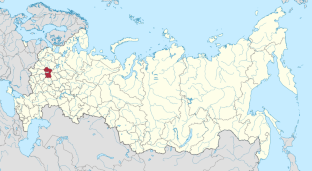
Similar content being viewed by others

The politics of designing with nature: reflections from New Orleans and Dhaka
Zachary Lamb

Acknowledgements
The landscape team from Gillespies Glasgow Studio (Steve Nelson, Graeme Pert, Joanne Walker, Rory Wilson and Chris Swan) led by the author and all our collaborators in the Capital Cities Planning Group.
Author information
Authors and affiliations.
Mackintosh School of Architecture, The Glasgow School of Art, 167 Renfrew Street, Glasgow, G3 6BY, UK
Brian Mark Evans
You can also search for this author in PubMed Google Scholar
Corresponding author
Correspondence to Brian Mark Evans .
Rights and permissions
Reprints and permissions
About this article
Evans, B.M. Reimagining Design with Nature: ecological urbanism in Moscow. Socio Ecol Pract Res 1 , 233–247 (2019). https://doi.org/10.1007/s42532-019-00031-5
Download citation
Received : 17 March 2019
Accepted : 13 August 2019
Published : 10 September 2019
Issue Date : October 2019
DOI : https://doi.org/10.1007/s42532-019-00031-5
Share this article
Anyone you share the following link with will be able to read this content:
Sorry, a shareable link is not currently available for this article.
Provided by the Springer Nature SharedIt content-sharing initiative
- Design With Nature
- Find a journal
- Publish with us
- Track your research

IMAGES
VIDEO
COMMENTS
Transfer Essay Questions. Please note: Princeton requires you to submit a graded written paper as part of your application.. For A.B. Degree Applicants or Those Who Are Undecided. As a research institution that also prides itself on its liberal arts curriculum, Princeton allows students to explore areas across the humanities and the arts, the natural sciences, and the social sciences.
Princeton's Transfer Program looks for a small group of exceptionally well-prepared students from a range of backgrounds, and we particularly encourage applications from students from lower-income backgrounds, community college students and U.S. military veterans. Our transfer admission program involves a highly individualized holistic review of each applicant's achievements, talents and ...
Transfer Application Dates & Deadlines. To apply, you will need to submit the Coalition Application or the Common Application and the Princeton-specific Questions. You can apply to Princeton as a transfer student through our Transfer application. Before you begin preparing your application, we encourage you to review our standardized testing ...
Transfer Application Checklist. Below you'll find the list of components that comprise the Princeton Transfer Application. In an effort to simplify all that is required of you, frame the process as three action steps: 1) Submit 2) Request and 3) Report. More information about optional components of the application is available at the base of ...
Below you will find the questions for the 2023-24 application cycle. Depending on which degree you wish to pursue at Princeton (A.B., B.S.E. or undecided), you will answer one of the two academic prompts, then there are three additional sections meant to help us get to know you even better. First-Year Essay Questions Transfer Essay Questions ...
receive. financial aid. $56,500 the average financial aid grant for students admitted to the class entering fall 2019. $51,870 tuition for the 2019-20 academic year. Transfer students, like first-year students, will be able to enroll in the fall term only. Most students will be expected to begin in their sophomore (second) year.
All transfer applicants must respond to the following essay prompts and short answer questions. Frankly, there are an insane number of essays required by Princeton as well as the submission of a graded academic paper.
May 16, 2019. Thomas Johnson. Editor's Note: Since reinstating the transfer program in 2018, the University has welcomed more students who are able to continue to grow the diversity of life experiences on campus. Hear from a few members of Princeton's first transfer class, and how they decided to call Princeton University their home.
Editor's Note: Dr. Keith Shaw, director of transfer, veteran and non-traditional student programs and Alex Bustin '08 , senior associate dean and director of transfer and military/veteran admission work together on Princeton's reinstated transfer program. Hear from them about their roles and their experience establishing and growing this program.
What's Covered: Princeton Essay Examples. Essays 1-2: Why This Major. Essay 3: Extracurricular. Essay 4: Difficult Topic. Essays 5-7: Civic Engagement. Essays 8-10: Quotation and Values. Where to Get Your Essay Edited for Free. Princeton University is consistently ranked within the top three colleges in the nation, and is world-renowned for ...
Moreover, the program also integrates resources provided by the Scholars Institute Fellows Program (SIFP) , which assists first-generation and/or lower income students in their transition to Princeton. The transfer program also introduces students to the McGraw Center for Teaching and Learning and Writing Center, which offer tutoring and essay ...
May 13, 2021. When I decided to transfer to Princeton, there was an air of mystery about what the next three years of my life would look like. Since Princeton's last transfer class graduated around the early 1990s, I wasn't sure what to expect. It honestly terrified me that there was no previous transfer student to ask about their ...
To submit your graded written paper, choose one of the following options: Option 1: Upload the graded written paper alongside your application materials when submitting the Common Application or QuestBridge Application. Option 2: Mail, email or upload the graded written paper to your applicant portal. The grade and the teacher comments should ...
Newer Post Transferring to Columbia University 2023. Older Post Transferring to UPenn 2023. In 2022, Princeton announced the expansion of their transfer program after years of declining transfer acceptance rates. This is an especially big deal because Princeton paused all transfer programs from 1990 through 2018. Yes.
Princeton University, situated in the small and charming city of Princeton, New Jersey, is often regarded as one of the world's most prestigious universities.Consistently ranked at #1 by the U.S. News undergraduate college rankings, it is no secret that Princeton exudes academic excellence and offers students a top-tier education.. With only 1,895 students being offered admission out of an ...
how to write Princeton Supplemental Essay Prompt #1. Princeton values community and encourages students, faculty, staff and leadership to engage in respectful conversations that can expand their perspectives and challenge their ideas and beliefs. As a prospective member of this community, reflect on how your lived experiences will impact the ...
Princeton transfer students come from a range of backgrounds. Some are married with children. Others have earned badges of adulthood, like paying a mortgage or caring for elderly parents. Bodies and minds worn by military service may yield medical emergencies that conflict with final exams. These considerations exist on what are arguably transfers' two heaviest burdens: 1) adjusting from the ...
Simply put, the Princeton Transfer Supplement consists of various supplemental questions. Word count ranges anywhere from 50 or lower to around 250 words. ... New Jersey-based research university, by the way, does not require transfer applicants to submit optional writing or essay section. Princeton has set no minimum test scores transfer ...
Transfer Essay Questions. Graded Written Paper Optional Arts Supplement QuestBridge Admission Statistics. Cost & Aid. ... Princeton had emerged as winners, defending the first standing in the Ivy League title with everything to be determined on the last game. Coming from the fervent soccer culture of Barcelona and as an avid FC Barcelona fan, I ...
That report addressed several aspects of Princeton's undergraduate admissions, including expanding the number of transfer students, maintaining the preferences that legacies - the children of ...
In addition to the Coalition Application or the Common Application, Princeton University requires the Princeton-specific Questions.Below you will find the supplemental questions for the 2023-24 application cycle. Depending on which degree you wish to pursue at Princeton (A.B., B.S.E. or undecided), you will answer one of the two academic prompts, then there are four additional sections meant ...
Equal Opportunity and Nondiscrimination at Princeton University: Princeton University believes that commitment to principles of fairness and respect for all is favorable to the free and open exchange of ideas, and the University seeks to reach out as widely as possible in order to attract the ablest individuals as students, faculty, and staff. In applying this policy, the University is ...
In the search form, specify your route: in the «From» field, enter the place of departure Moscow, in the «To» field - the destination. You can specify: hotel, hotel or city center from the drop-down prompts. Next, specify the number of passengers and click the «Show price» button. Choose the right transfer in Russia (RU) and fill out the ...
Kidding Herself is written from the point of view of a five year old girl and is a child's guide to going out in Moscow. Herself moved to Moscow from London in 2015 with her British Mama, her Russian Papa and her AngloRusski Big Brother.
The History of Moscow City. Moscow is the capital and largest city of Russia as well as the. It is also the 4th largest city in the world, and is the first in size among all European cities. Moscow was founded in 1147 by Yuri Dolgoruki, a prince of the region. The town lay on important land and water trade routes, and it grew and prospered.
The twenty-first century is the era when populations of cities will exceed rural communities for the first time in human history. The population growth of cities in many countries, including those in transition from planned to market economies, is putting considerable strain on ecological and natural resources. This paper examines four central issues: (a) the challenges and opportunities ...